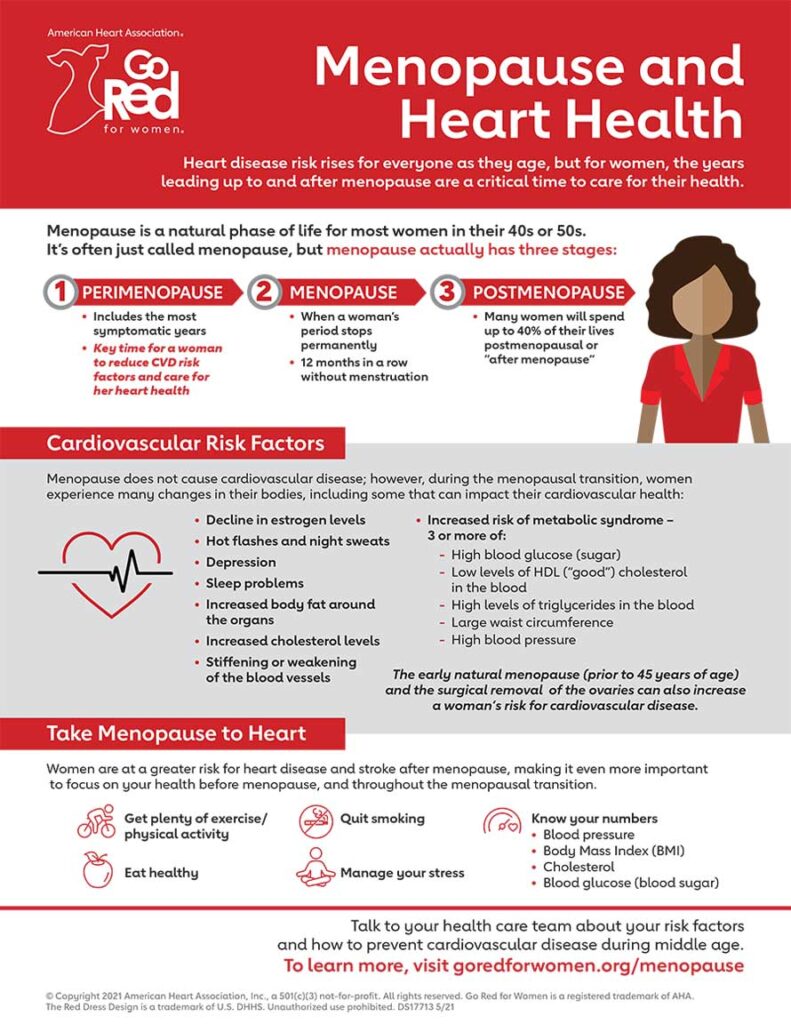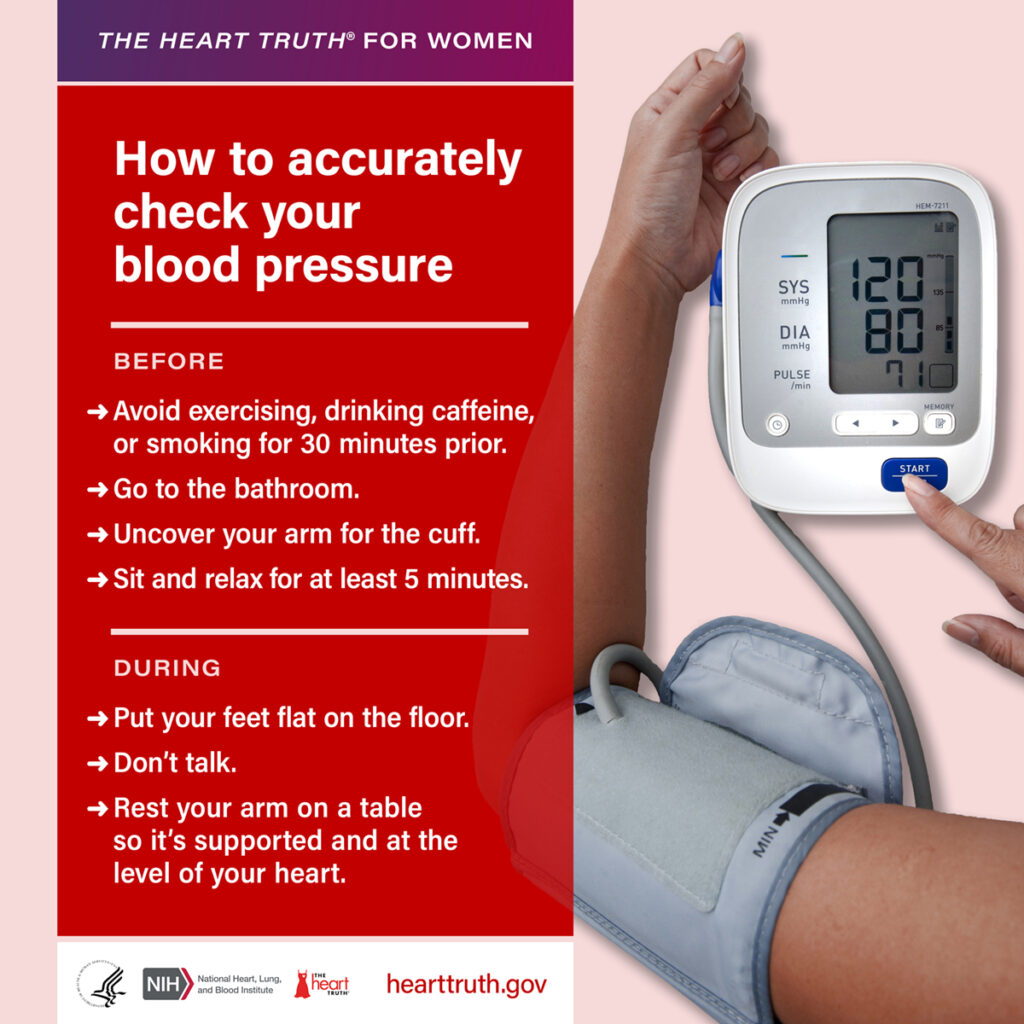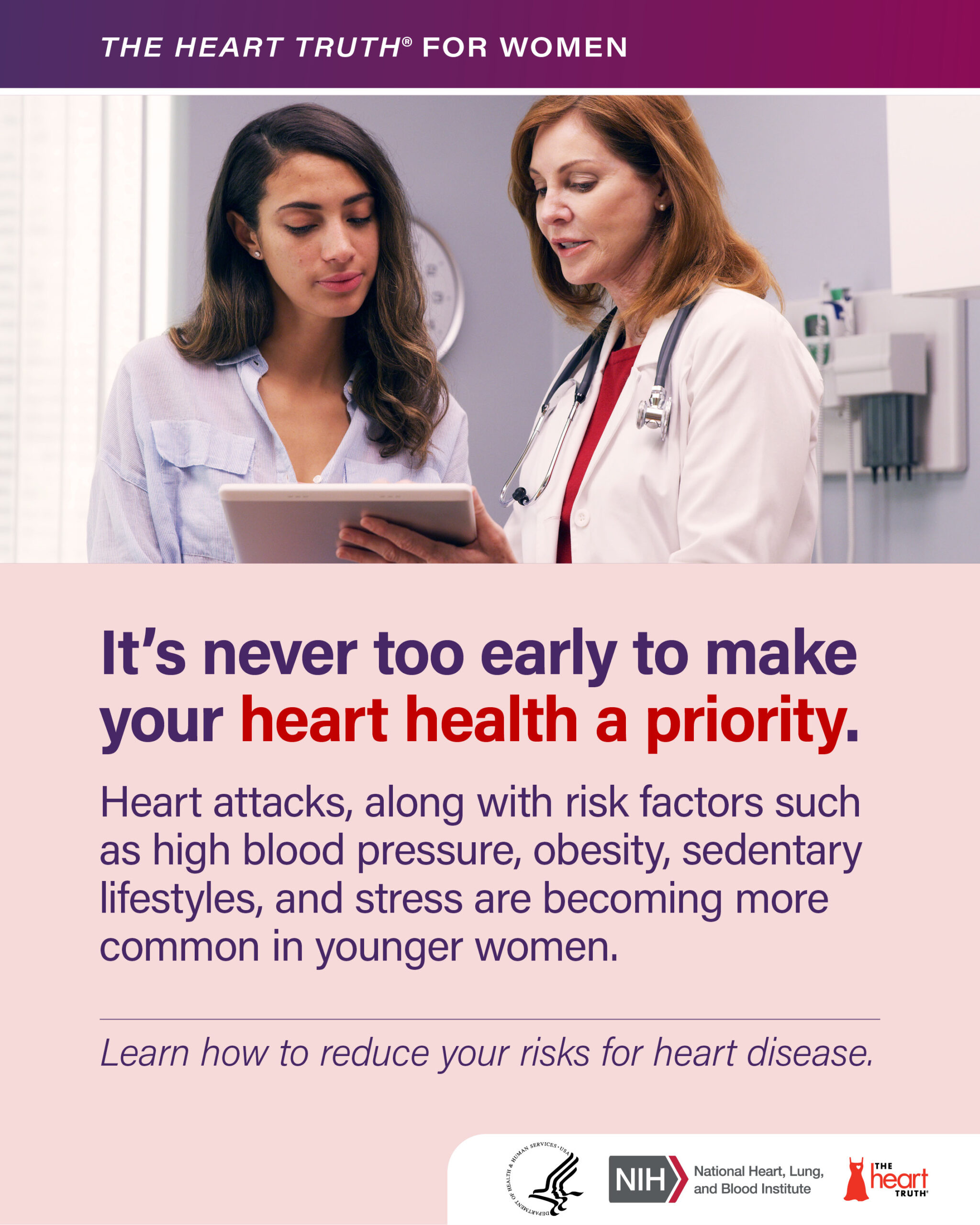Monitoring heart health seems more important in midlife, especially for women. At a recent doctor’s appointment, I learned that I had high blood pressure — a result that was concerning enough for the doctor to recommend that I buy an at-home monitor and check my blood pressure daily.
It was surprising because my blood pressure had always been normal or a bit on the low side. I did a bit of research and learned that one culprit could be menopause — the life change that affects all women in midlife — which can affect blood pressure and increase the risk of developing heart disease and stroke.
High Blood Pressure and Heart Disease Risk
High blood pressure is when blood pressure is higher than a normal measurement of 120/80. Usually, there are no warning signs or symptoms associated with high blood pressure, so the only way to find out is to get checked.
High blood pressure is important to identify and monitor because it is a major risk factor for heart disease. According to the Centers for Disease Control and Prevention (CDC), heart disease affects more than 60 million women (44%) and is the leading cause of death for women in the United States. In 2021, about 1 in 5 female deaths were due to heart disease.
Coronary artery disease is the most common form of heart disease. It is caused by plaque (fats, cholesterol, and other cellular substances) that builds up within arterial walls. Over time, the arteries can narrow and harden, decreasing the flow of blood and oxygen to the heart. Blood vessels can even become blocked by pieces of plaque that break off to form clots, thereby causing a heart attack or stroke.
Midlife, Menopause, and Heart Health
For women in midlife, menopause may have an important effect on heart health.
Menopause is a fact of life. While symptoms such as hot flashes, weight gain, and irritability are pretty well known, other health consequences of menopause are not as fully understood. Scientific studies have shown that estrogen has a protective effect against heart disease, which may be one reason higher rates of disease are seen in postmenopausal women.
I love the infographic below from the American Heart Association because it clearly outlines the impact of menopause on heart health. The most important message is that every woman has the power to decrease their risk of developing heart disease through intentional lifestyle choices — being more active, eating a healthy diet, managing stress, visiting the doctor regularly, and not smoking.

Image from here.
Prioritizing Heart Health
For me, I now have a blood pressure monitor and measure my blood pressure every day. I use the guide below to make sure I’m measuring correctly! If I see consistently high readings, I’ll definitely let my doctor know so we can discuss additional ways to manage my blood pressure.

Image from here.
I’m also more thoughtful about what I eat, how active I am throughout the day, and how I can better manage stress. I try to cook at home more using veggies and less meat (love the tofu packs at Costco!). I’m also getting back to riding on my Peloton bike more consistently and incorporating yoga/meditation sessions. Of course this little guy — who demands multiple daily walks while staying chic and warm in his custom hand-knit sweater! — keeps me active every day!

Resources
High blood pressure (Centers for Disease Control and Prevention)
Go Red for Women by the American Heart Association
Women and Heart Disease (Centers for Disease Control and Prevention)

Leave a Reply